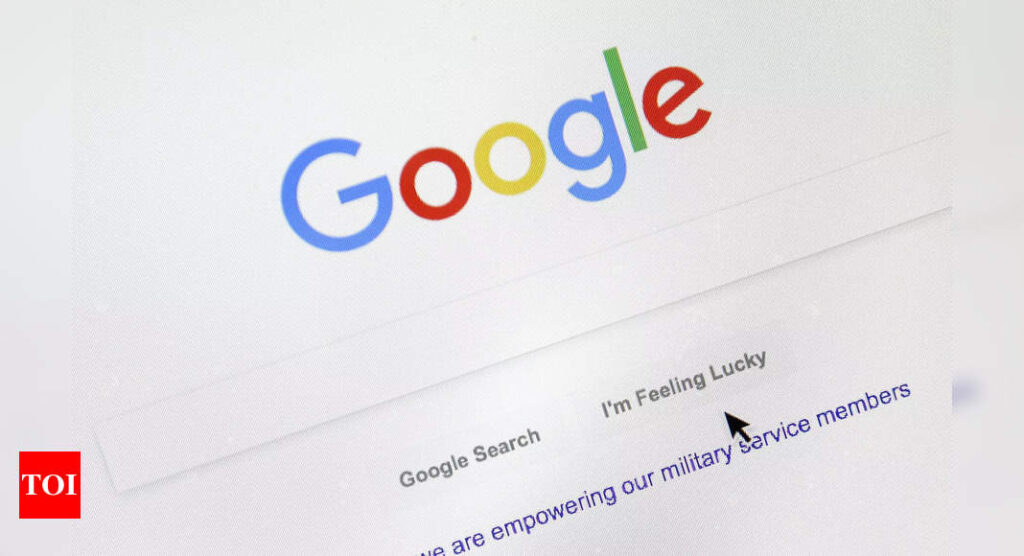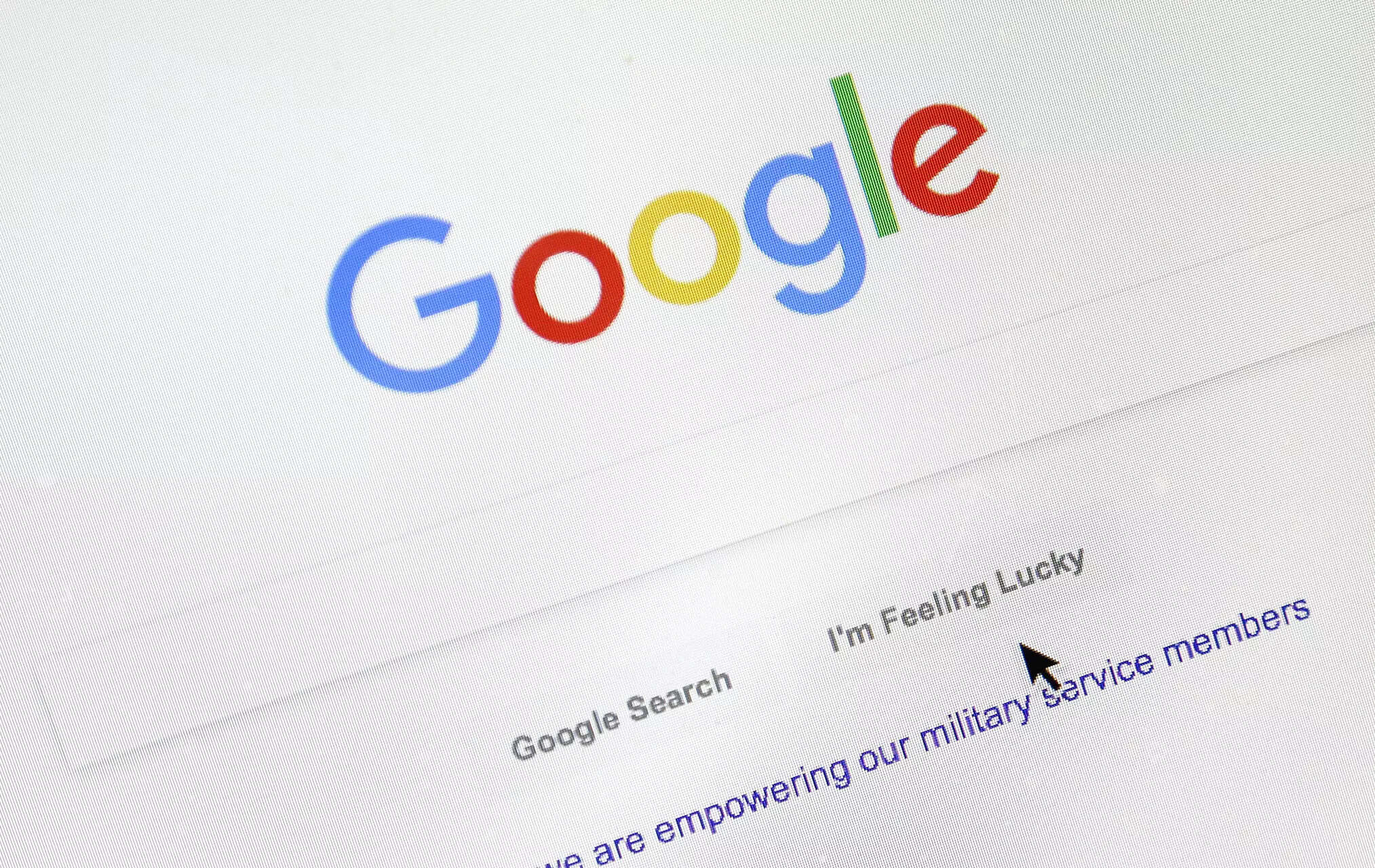[ad_1]
A senior Google executive once likened the company’s search advertising business to selling drugs, calling it “one of the world’s greatest business models ever created” since the company can “ignore” users and focus on generating revenue from advertising.
Michael Roszak, vice president for finance at Alphabet Inc’s Google, wrote the notes during a July 2017 training Google offered on communications.
“Search advertising is one of the world’s greatest business models ever created,” Roszak wrote, adding that there were only “illicit businesses (cigarettes or drugs) that could rival these economics.”
Google’s business can effectively “ignore one of the fundamental laws of economics,” Roszak wrote, supply and demand. This allowed the company to “ignore the demand side of the equation (users and queries) and only focus on supply side of advertisers.”
Because Google “made smart marketing/distribution investments to get our product everywhere,” Roszak wrote, “we could essentially tear the economics textbook in half.”
The document was used as a piece of evidence in the Justice Department’s antitrust case against Google, challenging a series of contracts where Google pays web browsers and smartphone markets to be the default search engine. The government is seeking to prove that Google engaged in anticompetitive tactics to maintain its dominant position. Google denies the allegations.
Roszak testified at the Justice Department’s trial last week, but the government removed from the web public access to emails, charts and internal presentations after Google protested. The agency began reposting exhibits Wednesday after Judge Amit Mehta brokered a compromise to create a procedure for their posting. Roszak’s notes were only made publicly available late Thursday.
The notes were created for a course on communications, Roszak said last week, though he couldn’t recall if he gave a presentation on the subject. Roszak said he never sent the document to anyone else at Google.
“This whole document is full of hyperbole and exaggeration, because there was no business purpose associated with it, it was part of the presentations course and trying out some of the tips they were offering there,” Roszak said, adding that he was “saying things I don’t believe as part of the presentation in this course.”
Google’s lawyers repeatedly objected to the document being used in court, arguing that it wasn’t a business record. Mehta agreed to hear Roszak’s testimony about the exhibit in a sealed session.
A Google spokesman said the statements don’t reflect the company’s opinion and noted that they were drafted for a public speaking class in which the instructions were to say something hyperbolic and attention-grabbing. The witness testified he didn’t believe the statements to be true, the spokesman said.
“He was cosplaying Gordon Gekko,” Google lawyer Edward Bennett said, referring to the infamous character from the 1987 film Wall Street and likening it to a “skit” Roszak was asked to give in a training session.
The fight over the document spilled over more broadly in the case when the Justice Department took down all the exhibits it had previously made public.
Mehta ruled that the exhibit would be admitted, expressing frustration that Google had put him “in a pickle” since it insisted the testimony that would have provided context be held in closed session.
“This doesn’t contain anything confidential,” he said. “I understand it’s somewhat embarrassing for the witness.”
“Here you have somebody who is the director of finance, who albeit in a training session made the decision to make a mock presentation,” Mehta said. “These are not statements that would fall outside his wheelhouse.”
The next day, Google’s lawyers sought to redact part of the document, but Mehta denied their request and said he would unseal the portion of Roszak’s testimony related to it.
Michael Roszak, vice president for finance at Alphabet Inc’s Google, wrote the notes during a July 2017 training Google offered on communications.
“Search advertising is one of the world’s greatest business models ever created,” Roszak wrote, adding that there were only “illicit businesses (cigarettes or drugs) that could rival these economics.”
Google’s business can effectively “ignore one of the fundamental laws of economics,” Roszak wrote, supply and demand. This allowed the company to “ignore the demand side of the equation (users and queries) and only focus on supply side of advertisers.”
Because Google “made smart marketing/distribution investments to get our product everywhere,” Roszak wrote, “we could essentially tear the economics textbook in half.”
The document was used as a piece of evidence in the Justice Department’s antitrust case against Google, challenging a series of contracts where Google pays web browsers and smartphone markets to be the default search engine. The government is seeking to prove that Google engaged in anticompetitive tactics to maintain its dominant position. Google denies the allegations.
Roszak testified at the Justice Department’s trial last week, but the government removed from the web public access to emails, charts and internal presentations after Google protested. The agency began reposting exhibits Wednesday after Judge Amit Mehta brokered a compromise to create a procedure for their posting. Roszak’s notes were only made publicly available late Thursday.
The notes were created for a course on communications, Roszak said last week, though he couldn’t recall if he gave a presentation on the subject. Roszak said he never sent the document to anyone else at Google.
“This whole document is full of hyperbole and exaggeration, because there was no business purpose associated with it, it was part of the presentations course and trying out some of the tips they were offering there,” Roszak said, adding that he was “saying things I don’t believe as part of the presentation in this course.”
Google’s lawyers repeatedly objected to the document being used in court, arguing that it wasn’t a business record. Mehta agreed to hear Roszak’s testimony about the exhibit in a sealed session.
A Google spokesman said the statements don’t reflect the company’s opinion and noted that they were drafted for a public speaking class in which the instructions were to say something hyperbolic and attention-grabbing. The witness testified he didn’t believe the statements to be true, the spokesman said.
“He was cosplaying Gordon Gekko,” Google lawyer Edward Bennett said, referring to the infamous character from the 1987 film Wall Street and likening it to a “skit” Roszak was asked to give in a training session.
The fight over the document spilled over more broadly in the case when the Justice Department took down all the exhibits it had previously made public.
Mehta ruled that the exhibit would be admitted, expressing frustration that Google had put him “in a pickle” since it insisted the testimony that would have provided context be held in closed session.
“This doesn’t contain anything confidential,” he said. “I understand it’s somewhat embarrassing for the witness.”
“Here you have somebody who is the director of finance, who albeit in a training session made the decision to make a mock presentation,” Mehta said. “These are not statements that would fall outside his wheelhouse.”
The next day, Google’s lawyers sought to redact part of the document, but Mehta denied their request and said he would unseal the portion of Roszak’s testimony related to it.
[ad_2]
Source link











More Stories
India’S Growth Forecast: S&P ups India’s FY’24 growth forecast to 6.4% on robust domestic momentum
India to remain fastest-growing major economy, but demand uneven: Poll
Jack Ma: Jack Ma gets back into business with ‘Ma’s Kitchen Food’